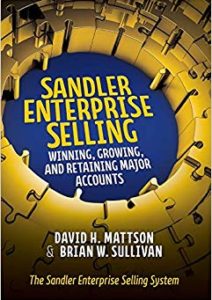What do we always hear about leopards? Right. They never change their spots.
Or do they?
Post-COVID, there’s been tremendous emphasis on the many changes that clients and prospects have gone through. A critical topic. Understanding the changes in client needs and pains directly impacts your ability to serve them effectively and win their business. But what about your competitors? You knew them well and what to expect from their likely tactics and strategies. But are they acting now in the same way as they did in February of 2020? Think about it. Are you acting the same way? Of course not. You’ve changed and so have your competitors. And understanding just how they’ve morphed can be the difference between winning or losing in deals against them.
Some past adversaries may have disappeared altogether, casualties of the COVID tornado. But just as new growth blossoms from a burned forest, fresh competition now blooms, challenging you and fighting hard to beat you. Whether fresh faces or enhanced versions of old enemies, it’s your job to know them comprehensively.
Sticking to my big cat theme, I share an old Indian saying that resonates in today’s dynamic B2B selling climate. “In the dark of the night, every cat’s a leopard”. Tabby or leopard? Lap cat or predator? Important to know? Literally and figuratively, it’s a survival skill. Know and act accordingly. But how can you know? What competitive analysis tools and processes are available to help?
Competitive analysis usually comes in one of two flavors. First, there’s the competitive outlook found in business planning, employed to validate the viability of an initiative. It’s interesting but far too broad, providing little help in tracking competitors in specific deals. The other variety includes extensive investigation and data analysis but lacks the selling focus needed in deal strategy. And even if you had the time, energy and resources for such deep dives, much of what you uncover would be completely irrelevant.
So, what can you do? How can you point the flashlight towards the movement in the tall grass to see if you should grab a shotgun or a can of tuna?
You start with a framework that clearly identifies the ten most important areas of competitive focus:
- Facts
- Products/Services
- Performance
- Markets
- People
- Positioning
- Value Proposition/Pricing
- Accounts
- Strengths/Weaknesses
- Plans
The key is to target only the information that is particularly relevant to a specific competitor and situation. Information that is, simply put, impactful. In selling, you must be laser-focused. Wading through mountains of data is distracting and a waste of good selling time. You can’t afford to bother with information that’s not on the critical path to success in a deal. It must drive wins. Nothing more, nothing less.
For an example, consider the “People” section in the framework above. Many competitive analysis processes blindly promote extensive analyses of organization charts and deep research into top executives. If high-level executives are specifically relevant to your deal, then, by all means, do target your research on them. But it’s more likely that other players in competitive organizations will have greater impact. Maybe a sales rep you frequently face off against or an industry expert with deep experience in the prospect account’s vertical. If these are the individuals who are truly relevant, focus on understanding them and strategizing against them. It’s critical. In fact, it may well dictate the deal’s outcome. And remember, only you know the players who are most impactful – the true targets for your research. Don’t try to research everyone and certainly not those deemed as “important” by some boilerplate competitive analysis template. Of course, that same mindset regarding the true relevance of information applies to the other nine areas of the framework as well.
Think about it. In this post-COVID world, deals are precious. Just as with clients, you need a laser-focused understanding of how your key competitors have changed. No unnecessary or obsolete information. Only what’s truly impactful, streamlined and targeted to increase your chances of winning.
The framework’s detail areas span a wide landscape, covering most competitive topics. Some areas, of course, are less relevant than others in specific deals – they get less or no focus. Which ones truly matter should be based completely on your judgment. Don’t allow your reality to be shoehorned into a boilerplate template. That doesn’t work.
After researching and targeting the areas that are relevant to the specific competitor and deal, you move on to actions. It’s all about forward motion. No selling event should represent a snapshot in time. Everything must look ahead. As such, you craft five or six significant actions resulting from your research in the sections. Specific, date-bound actions, including RACI responsibility designations. Then, you act.
Post-pandemic change. You are keenly focused on it with your clients, of course. But ignore it with your competitors at your own peril. Analyze them as well, but in a streamlined, pragmatic way. Because it’s not the research that matters. It’s the impact. Especially now.















































Comments (1)
Good one